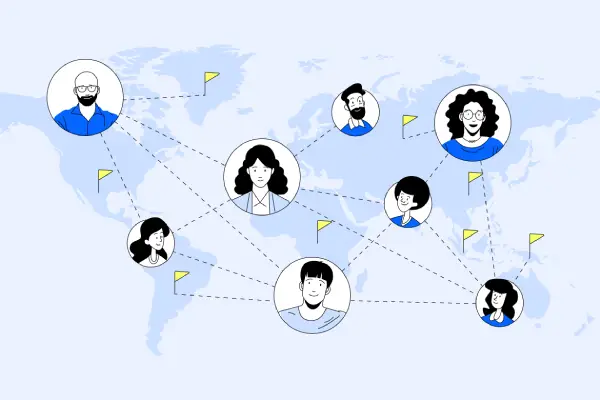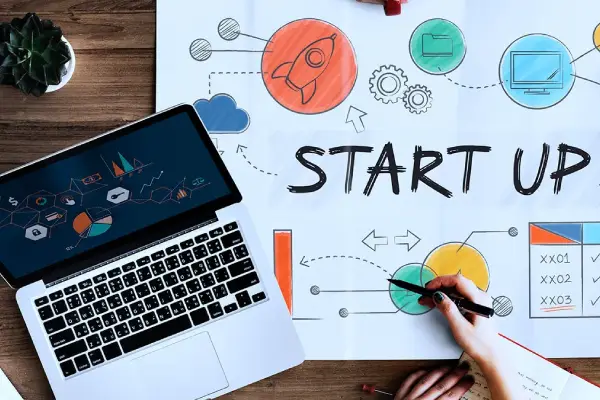Ever wondered why some businesses skyrocket to global success while others struggle to keep up?
What makes brands like Apple, Netflix, and Tesla thrive internationally? The answer lies in GLOBALIZATION.
Globalization isn’t just a trend—it’s the future. It’s the way the world is moving, and if your business isn’t thinking beyond borders, you’re already playing catch-up. The good news? It’s never been easier to expand globally, if you know how to do it right.
In this guide, you’ll learn:
- Why globalization matters and how it’s changing the business game.
- The different types of globalization—economic, cultural, and political.
- How an Employer of Record (EOR) works and why it’s a game-changer for global hiring.
- The biggest advantages of globalization, from cost savings to expanded market opportunities.
Ready to think beyond borders? Let’s get started!
This article covers:
- What is Globalization?
- Types of Globalization
- Economic Globalization
- Cultural Globalization
- Political Globalization
- Employer of Record (EOR): The Game Changer for Global Expansion
- The Biggest Advantages of Globalization for Businesses
- The Future is Global—Are You Ready?
What is Globalization?
Globalization is all about how the world is becoming more connected. Imagine a time when traders traveled the Silk Road, exchanging spices, fabrics, and ideas between Asia and Europe. That was an early form of globalization! The term itself was coined in the 1980s, but the idea has been around for centuries.
Today, globalization impacts everything—economies, cultures, politics, and businesses. Think about how companies like Tesla and Apple operate in multiple countries, manufacturing in one place, selling in another, and managing a global workforce. This interconnectedness gives businesses an edge. Those who embrace globalization can expand and thrive, while those who ignore it risk falling behind. The world is moving fast—are you keeping up?
Types of Globalization
Understanding the different types of globalization is crucial for business leaders looking to expand internationally. Here’s a deeper dive into the three key types:
-
Economic Globalization
This is what most people think of when they hear “globalization.” It revolves around trade, investments, and the free movement of goods, services, and capital across borders.
Examples of economic globalization:
- A smartphone—components sourced from China, software developed in the U.S., and assembly in India.
- The global stock market—an economic crisis in one country can impact economies worldwide.
- E-commerce platforms like Amazon and Alibaba—businesses selling globally with ease.
- Outsourcing customer service to the Philippines and India—lower operational costs for companies.
- Multinational corporations setting up tax-friendly production hubs—minimizing costs and maximizing profits.
While economic globalization boosts efficiency and profits, it also brings risks. Trade disputes, economic dependencies, and cybersecurity threats are major concerns. Global recessions and currency fluctuations can shake industries worldwide.
-
Cultural Globalization
Cultural globalization is the exchange and blending of traditions, customs, and ideas across borders. It is fueled by technology, entertainment, and travel.
Examples of cultural globalization:
- Social media platforms—Instagram, TikTok, and Twitter enabling instant global communication.
- Netflix, Hollywood, and Bollywood—films and TV shows shaping global entertainment preferences.
- International sports events—FIFA World Cup and the Olympics uniting cultures through competition.
- Fast-food chains—McDonald’s, KFC, and Starbucks adapting to local tastes worldwide.
- The English language is becoming dominant—simplifying cross-border business and education.
Cultural globalization fosters shared experiences. However, it also raises concerns. Local traditions can fade, and Western influence can overshadow indigenous cultures.
-
Political Globalization
Political globalization refers to how governments and international organizations work together to establish policies that encourage global cooperation.
Examples of political globalization:
- World summits—leaders tackling climate change, trade, and security challenges.
- The Paris Agreement—global efforts to combat environmental threats.
- International organizations—United Nations (UN), World Trade Organization (WTO), and International Monetary Fund (IMF) shaping policies.
- The European Union (EU)—facilitating cross-border trade and labor mobility.
- NATO—coordinating security strategies among allied nations.
Political globalization promotes international cooperation. However, it can also create conflicts of interest. Powerful nations may dictate policies, leaving smaller economies struggling to keep up.
Employer of Record (EOR): The Game Changer for Global Expansion
Scaling globally sounds exciting, but let’s be real—dealing with international employment laws, taxes, and compliance is complex. That’s where an Employer of Record (EOR) comes in.
An EOR acts as the official employer on paper while you control the day-to-day operations of your employees. This means:
- No need to set up a local entity in every country you want to hire in.
- Payroll, taxes, and benefits are handled for you.
- Compliance with local labor laws is ensured, so you don’t run into legal trouble.
Instead of spending months navigating complex regulations, an EOR lets you hire talent globally within days. That’s a major advantage over competitors stuck in bureaucracy.
The Biggest Advantages of Globalization for Businesses
If you’re still on the fence about global expansion, here’s what you’re missing out on:
1. Access to New Markets
Why limit your business to one country when you can sell to the world? Globalization allows companies to tap into international markets, increasing customer base and revenue streams.
2. Cost Efficiency
Outsourcing production or hiring remote workers in cost-friendly countries can save your business a fortune. Globalization provides flexibility in sourcing affordable materials and skilled labor.
3. Innovation and Knowledge Sharing
Companies that operate internationally have access to a diverse talent pool. Different perspectives lead to fresh ideas, better problem-solving, and ultimately, innovation that keeps you ahead.
4. Stronger Brand Presence
Brands with a global presence gain credibility and trust faster. Look at Apple, Nike, or Netflix—globalization made them household names.
5. Cultural Exchange
Engaging with international markets allows businesses to adapt and innovate in ways that wouldn’t be possible locally. Cross-cultural collaboration enhances creativity and broadens perspectives.
The Future is Global—Are You Ready?
Globalization is no longer a choice. It’s a competitive advantage. Companies that embrace it unlock new markets, cost efficiencies, and unparalleled innovation. Whether it’s through economic, cultural, or political globalization, businesses that adapt will thrive. Those that resist risk becoming obsolete.
The good news? You don’t have to navigate this journey alone. Tools like Employer of Record (EOR) simplify international expansion. They make it easier than ever to build a global team and tap into new opportunities.
So, what’s your next move? Will you take the leap and expand your business beyond borders? Or will you watch from the sidelines as your competitors go global? The future belongs to those who act now. It’s time to think beyond boundaries and embrace the limitless potential of globalization.







 =Hi
=Hi